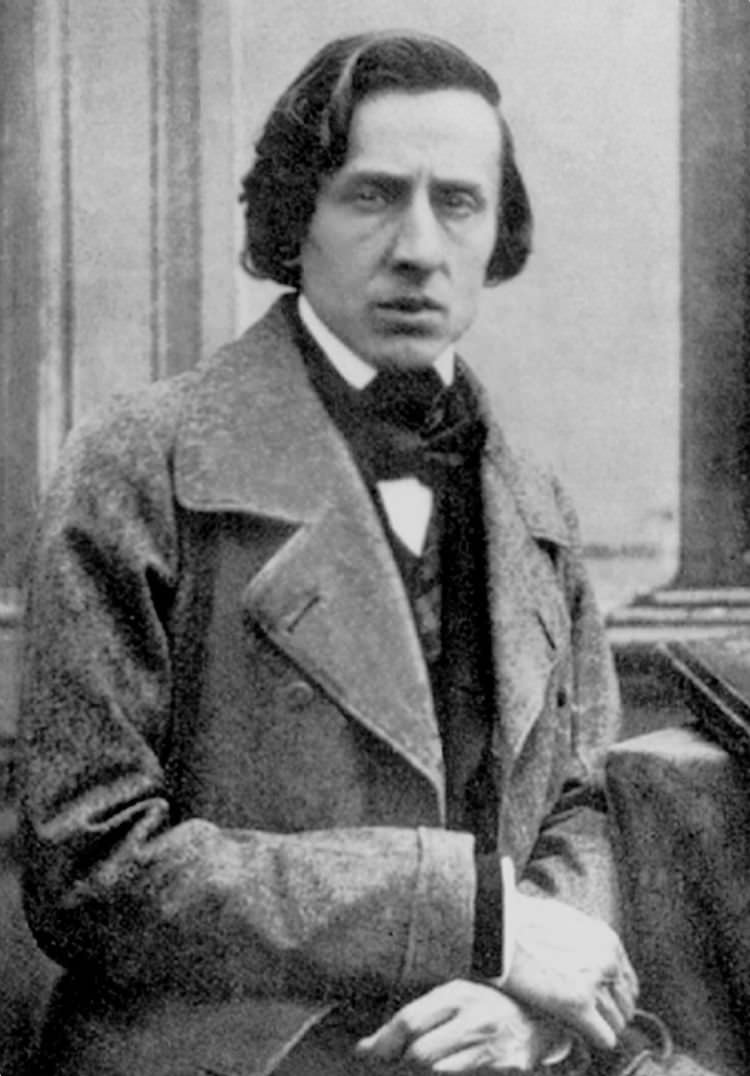Why people today love the music of Frédéric Chopin
Frédéric Chopin, a Polish composer and pianist of the Romantic era, continues to captivate audiences worldwide with his emotionally evocative and technically dazzling compositions. Born on March 1, 1810, in Żelazowa Wola, Poland, Chopin left a lasting legacy through his vast body of work, particularly his piano compositions. Despite living in the 19th century, his music transcends time and resonates deeply with people today. In this article, we will explore the reasons why Chopin's music continues to be loved and cherished in the modern era.
Emotional Depth and Expressiveness
One of the most compelling aspects of Chopin's music is its profound emotional depth and expressiveness. Whether it is the haunting melancholy of his Nocturnes, the fiery passion of his Ballades, or the delicate beauty of his Preludes, Chopin's compositions have the ability to stir the soul and elicit a wide range of emotions. His music possesses an intimacy and introspection that allows listeners to connect with their own innermost feelings.
Chopin had a remarkable ability to convey complex emotions through his music, often drawing inspiration from personal experiences and the political climate of his time. His compositions are known for their lyrical melodies, dramatic contrasts, and intricate harmonies, all of which contribute to the emotional power and enduring appeal of his music. Whether it is the bittersweet nostalgia of the "Raindrop Prelude" or the profound longing of the "Fantaisie-Impromptu," Chopin's music has an uncanny ability to touch the deepest corners of the human heart.

Technical Brilliance and Innovation
Chopin's music is not only emotionally engaging but also technically brilliant. As a virtuoso pianist himself, he pushed the boundaries of piano technique and revolutionized the way the instrument was played. His compositions are filled with intricate ornamentations, rapid runs, and complex fingerings that demand exceptional skill and control from the performer.
Chopin's innovative approach to piano composition expanded the possibilities of the instrument. He developed new techniques, such as his use of the "singing tone" and the creation of delicate and nuanced phrasing. His compositions challenged pianists to explore the full range of expression and technical prowess, pushing the boundaries of what was thought possible on the piano. Chopin's music requires not only technical mastery but also a deep understanding of musical nuance, touch, and interpretation, making it a constant source of inspiration and fascination for pianists around the world.
Universality and Timelessness
Despite being deeply rooted in the Romantic era, Chopin's music possesses a universal quality that transcends time and cultural boundaries. The themes and emotions he captured in his compositions are timeless and relatable, resonating with people across different generations and cultures. The beauty and universality of Chopin's music have allowed it to endure and remain relevant in the modern era.
Chopin's music speaks directly to the human experience, addressing fundamental aspects of life such as love, longing, joy, and sorrow. Whether it is the tender introspection of a Nocturne or the triumphant grandeur of a Polonaise, Chopin's compositions have an uncanny ability to evoke deep emotions and connect with listeners on a profound level. The universality of his music lies in its ability to touch upon the core of the human condition, expressing feelings and experiences that are universal to all of us.

Versatility and Range of Compositions
Another reason why people today love Chopin's music is the sheer variety and range of his compositions. From delicate and introspective miniatures, such as his Mazurkas and Waltzes, to grand and virtuosic works, such as his Études and Scherzos, Chopin's oeuvre covers a wide spectrum of musical styles and moods.
This versatility appeals to a broad audience, as listeners can find something to resonate with, regardless of their musical preferences. Whether one enjoys the gentle lyricism of his Nocturnes or the thunderous power of his Polonaises, there is always a Chopin composition that speaks to their individual tastes and preferences. His music effortlessly transitions from moments of serene tranquility to passages of intense passion and drama, captivating listeners with its ever-changing emotional landscape.
Influence on Music and Musicians
Chopin's influence extends far beyond his own compositions. He played a crucial role in shaping the development of piano music and influenced countless composers and musicians who came after him. His innovative use of harmonies, delicate ornamentations, and emotional depth set the stage for the musical advancements of the Romantic era and beyond.
Pianists in particular continue to draw inspiration from Chopin's works. His compositions remain staples of the piano repertoire, and his technical innovations continue to be studied and emulated by aspiring pianists. Chopin's music serves as a benchmark for technical proficiency, expressive interpretation, and artistic sensitivity, making it an essential part of a pianist's training and performance repertoire.
Chopin's influence is not limited to the classical music world. Elements of his style can be heard in various genres, from jazz to popular music. His melodies and harmonic progressions have been adapted and incorporated into modern compositions, showcasing the timelessness and versatility of his music.
Conclusion
Frédéric Chopin's music continues to hold a special place in the hearts of people today, as it did in his own time. The emotional depth, technical brilliance, universality, versatility, and lasting influence of his compositions are some of the key factors that contribute to the enduring love and admiration for his music. Whether it is the pianistic fireworks of his virtuosic pieces or the tender introspection of his lyrical compositions, Chopin's music possesses a timeless allure that transcends generations and cultural boundaries. As we listen to his music, we are reminded of the power of artistic expression and the profound impact that music can have on our lives. Frédéric Chopin's legacy as a composer and pianist continues to shine brightly, reminding us of the enduring power and beauty of his musical genius.
Our website respects the intellectual property rights of creators, as well as the music rights of authors and composers.
The musical works are provided solely for the private use of each visitor/user
and any further exploitation of them in any way is prohibited without prior permission from AUTODIA and EDEM Rights.
Radio Art is fully approved by the Greek Collective Rights Organizations | AUTODIA | EDEM Rights
Copyright © RABS - Radio Art Broadcasting services Ltd. All rights reserved.
The Art of Relaxing & Meditation Music
Privacy Policy & TOS








